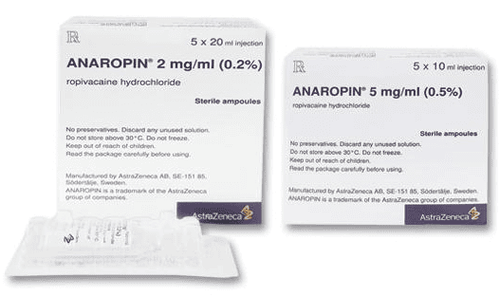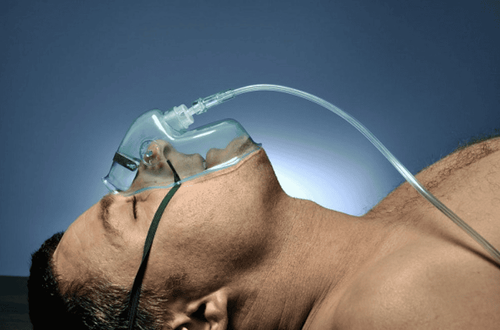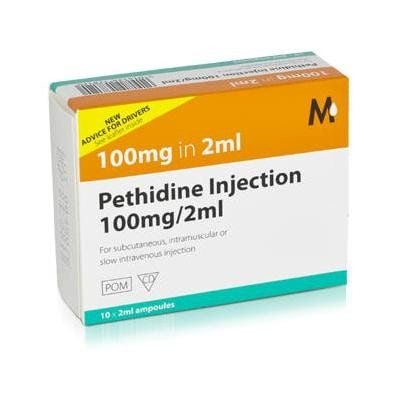This is an automatically translated article.
Today with the development of medicine, patients can undergo painless procedures and surgery under anesthesia. Anesthesiologists play an important role in protecting patients from the stress of procedures and surgery due to their sleep-inducing and pain-relieving effects. Besides, anesthetics can also cause unwanted effects. The extent of these side effects can vary depending on many factors.
1. What is an anesthetic?
Anesthetics are substances that, when introduced into the body, have the ability to temporarily inhibit the central nervous system.
Anesthesia usually has the following effects:
Loss of consciousness: the patient will be in a state of anesthesia Reducing or losing pain Decreases muscle tone, softens muscles Depending on the dose and purpose, the drugs Anesthesia can be used for mild (light to deep sedation) or deep (general anaesthesia)
Anesthesia is classified into two types, based on the method of anesthetic injection into the body :
Inhalation anesthetics Intravenous anesthetics

Thuốc mệ giúp làm giảm hay mất cảm giác đau đớn trong phẫu thuật
2. Criteria of an ideal anesthetic
Fast-acting, mellow, non-irritating, does not increase muscle tone, movement Few side effects on respiration, circulation Has as much pain relief as possible Quick recovery at the end of use Use and when awake with less unpleasant effects such as irritability, hallucinations, vomiting, nausea, dizziness No Histamine release effect to not cause allergies and anaphylaxis (drug shock) Reduces internal pressure skull, reducing oxygen consumption of brain cells If intravenous anesthetic: does not cause irritation of surrounding tissues or veins when injected. The drug is soluble and stable in water solvents, can be used for a long time after reconstitution
3. Unwanted effects of anesthetics
Cardiovascular effects: Decreased myocardial contractility, decreased cardiac output, caused hypotension (especially at high doses or in patients with inadequately compensated hypovolemia), decreased myocardial contractility. Blood vessels cause vasodilation, keeping blood in the organs.Effects on respiration:
Depression of the respiratory center, depending on the dose and injection rate, may cause respiratory depression or apnea. Hyperreflexia, constriction of the pharynx, larynx, trachea, causing the onset of seizures bronchial asthma in patients with a history of asthma. Increased secretion of viscous sputum Effects on the central nervous system: increased or decreased intracranial pressure, hallucinations when awake, involuntary movements. Delirium, post-anesthesia cognitive disorder is common in the elderly, with pre-existing neurological disease.
Other effects:
Decreased blood flow to the liver, kidneys, can reduce liver and kidney function in patients with previous liver and kidney failure. Pain at injection site Nausea, vomiting on awakening Allergic reactions: rash, urticaria, itching, edema, laryngospasm, anaphylaxis (danger) Chills due to hypothermia Dizziness, loss of consciousness orientation when awake, increasing the risk of falls

Thuốc mê có thể gây tác dụng phụ trên hô hấp
4. What to do to avoid unwanted effects of anesthesia?
To date, there is no anesthetic that possesses all the properties of an ideal anesthetic. Therefore, it is necessary to evaluate the patient and the requirements of the procedure - surgery to choose the most suitable drug and dose, to minimize the unwanted effects of the drug. Things to do include:
The patient needs to inform the anesthesiologist about any comorbidities (high blood pressure, diabetes, asthma...), allergy history, current medications. Perform proper fasting before being sedated to avoid vomiting and pneumonia caused by aspiration of vomit. Anesthesiologist examines pre-anesthesia according to the procedure, properly assesses the patient's condition. From there choose the right drug, the right dose to minimize the effects of the drug on the organs. Special attention should be paid to dose reduction in the elderly, liver failure, renal failure to avoid cardiovascular and respiratory accidents and aggravate liver and kidney failure. Using the drug with the lowest effective dose, it is possible to combine many drugs to reduce the dose of each type and still achieve good results. Closely monitor patients to detect and promptly handle unwanted drug effects. For patients who are sedated for procedures or surgery on the same day, it is necessary to instruct patients to follow to avoid the risk of falling, not to drive within 8 hours, not to sign important documents within 24 hours. upon discharge from the hospital. If you are tired, short of breath, dizzy, vomiting, or nauseous when you go home, you should contact the anesthesiologist hotline immediately for advice and guidance. Vinmec International General Hospital is one of the hospitals that not only ensures professional quality with a team of leading doctors, modern equipment and technology, but also stands out for its examination and consulting services. and comprehensive, professional medical treatment; civilized, polite, safe and sterile medical examination and treatment space.
To register for the fastest examination and treatment, you can contact Vinmec medical system or register online HERE.













